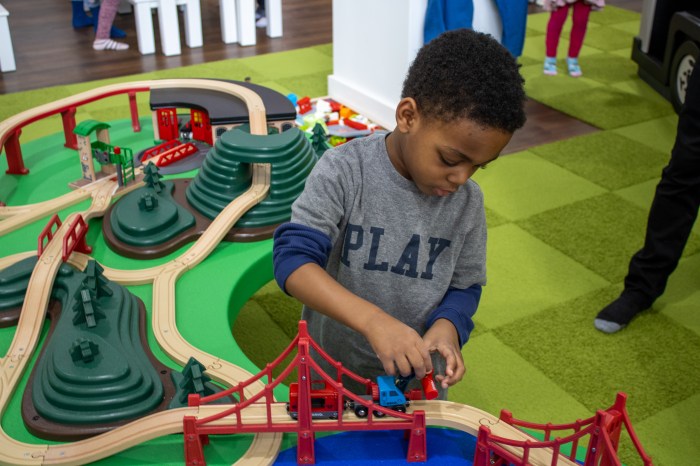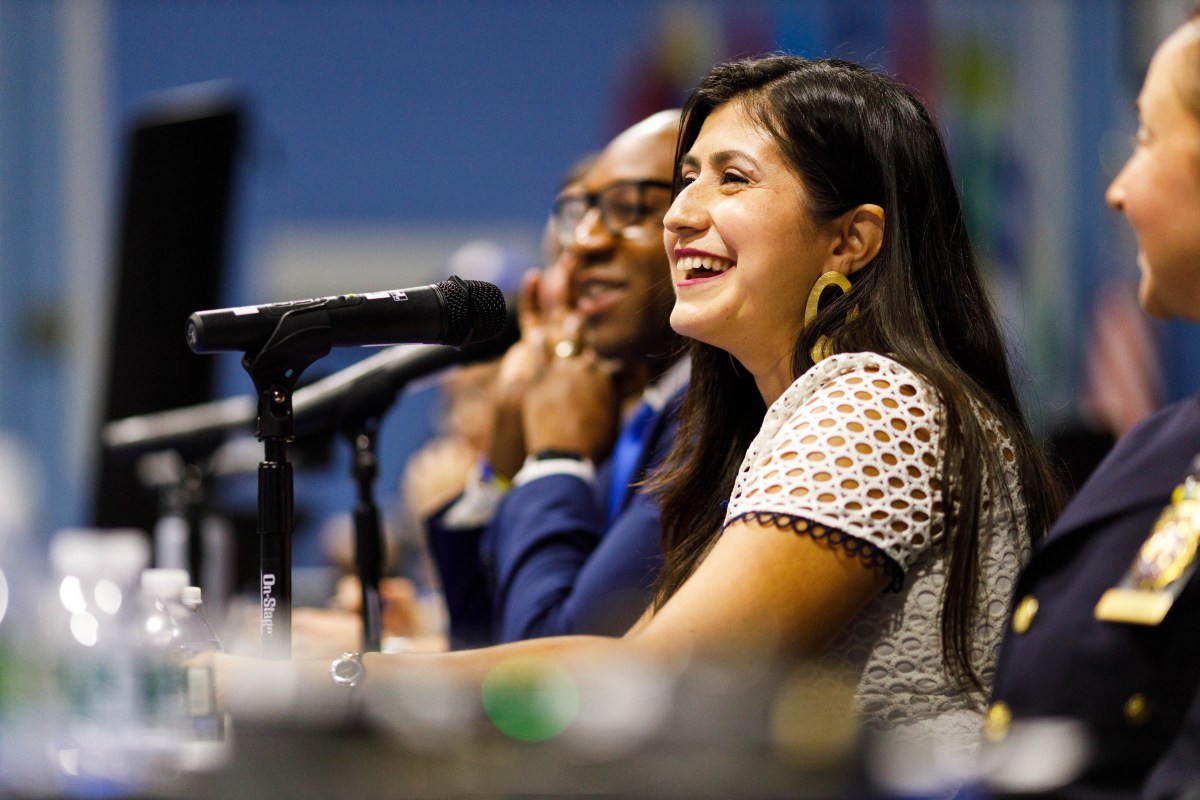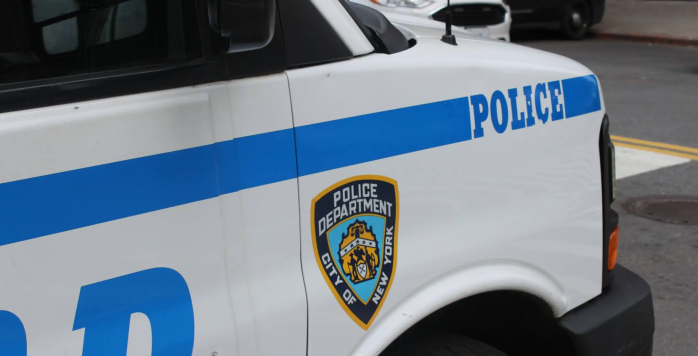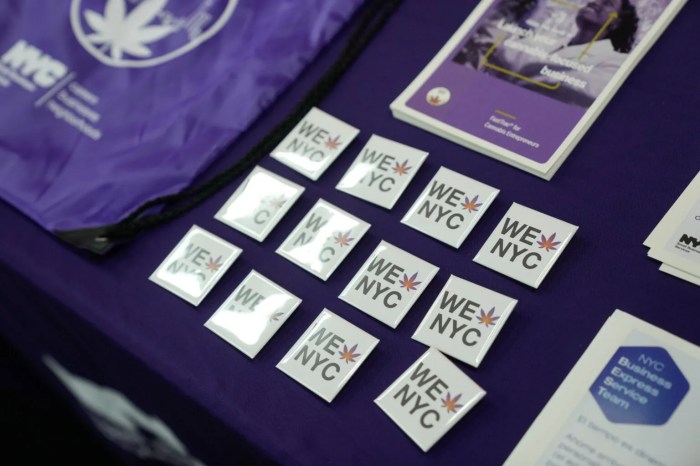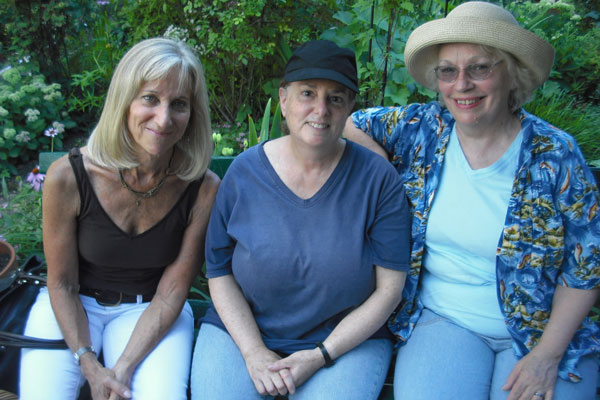
BY ERICA RAKOWICZ | “This expansion plan is N.Y.U. on Viagra and the community needs the morning-after pill,” said Sara Jones, chairwoman of LaGuardia Corner Gardens.
The gardens, at LaGuardia Place between Bleecker and Houston Sts, is in jeopardy if New York University’s 2031 plan is approved, according to Jones and her fellow green thumbs.
LaGuardia Corner Gardens are home to a diverse group of gardeners, with individual plots, featuring individual plant preferences.
Many community members — including a large number of N.Y.U. faculty living nearby — oppose the university’s development plan, according to Rhoma Mostel, because they fear that the garden and nearby community areas would be adversely impacted.
“You have to see what we all see. You have to come and sit in the garden, see the green, breathe the air,” Mostel said about the benefits the green oasis offers.
The gardens’ health and beauty are due to the passion, dedication and sweat the volunteers pour into them each season, making it an undeniably important community asset. Indeed, its value is recognized by visitors from both near and far.
“Visitors will walk around the garden path and ask what we’re growing,” noted Barb Cahn. “Once I had a visitor who asked from outside the gate if I was growing mint, and I said, ‘Yes, here’s a sprig.’ ”
But the gardeners fear the N.Y.U. 2031 plan — which would develop a new building on the adjacent Morton Williams Associated supermarket site, plus up to three other buildings — would deprive the community and visitors alike of a treasured swath of nature.
“The plan doesn’t directly address taking the garden down,” Jones acknowledged. “But, they’ve said they can stage their construction here, which would end up killing it.”
Construction staging on the gardens would mean bulldozers and other heavy equipment rumbling through the carefully cultivated plots. In addition, construction sites often attract rodents, and then poison is used to kill the rodents, which could cause an environmental disaster, the gardeners noted.
“Squirrels might eat the rats who ate the poison, and then the red hawks who nest here will eat those poisoned squirrels and it just throws everything off balance,” said Ellen Horan, the gardens’ vice chairperson.
In addition, if the proposed buildings are built, a shadow would be cast over the gardens, making it difficult for the current plants to stay alive, should they even survive the construction process.
“It’s like they’re going to make this atomic bomb to destroy the rest of the area,” Horan said of the dreaded 2031 scheme.
New Yorkers for Parks, in a statement released at the recent City Council hearing on the N.Y.U. plan, said its supports 2031, with a few conditions, including the preservation of LaGuardia Corner Gardens.
In order to preserve the gardens, there have been talks about modifying them, such as by adding shade-tolerant plants. Yet, that would limit the gardens and detract from their native appeal, say the gardeners.
“Trees take so long to grow,” Jones said. “It’s not like we can rebuild this in a day.”
“The apple tree predates the garden — how could you get rid of that?” asked Mostel.
The urge to safeguard the superblocks’ community spaces — such as the gardens — drove many to attend the recent Council meeting to testify against the N.Y.U. plan and show their opposition.
Actor Matthew Broderick testified at the hearing, recalling playing baseball on the superblocks as a kid and how important that had been to him.
“This garden is a way for the community to follow the seasons,” Mostel said. “You accumulate knowledge from watching the garden grow with time.”
Jones teaches children about the garden while giving them tours and discussing the benefits a garden provides. She said some of the children never realized apples come from trees and not the supermarket.
A question Jones asks the children is, “Why do we need trees?”
“They usually respond with ‘food’ and ‘flowers,’ so I ask them again — but tell them to take a breath first,” Jones said. The kids soon catch on to the fact that trees are needed for cleaner air, and they recognize the importance of a neighborhood garden.
“It’s like I can see the light bulb over their heads,” Jones said.












